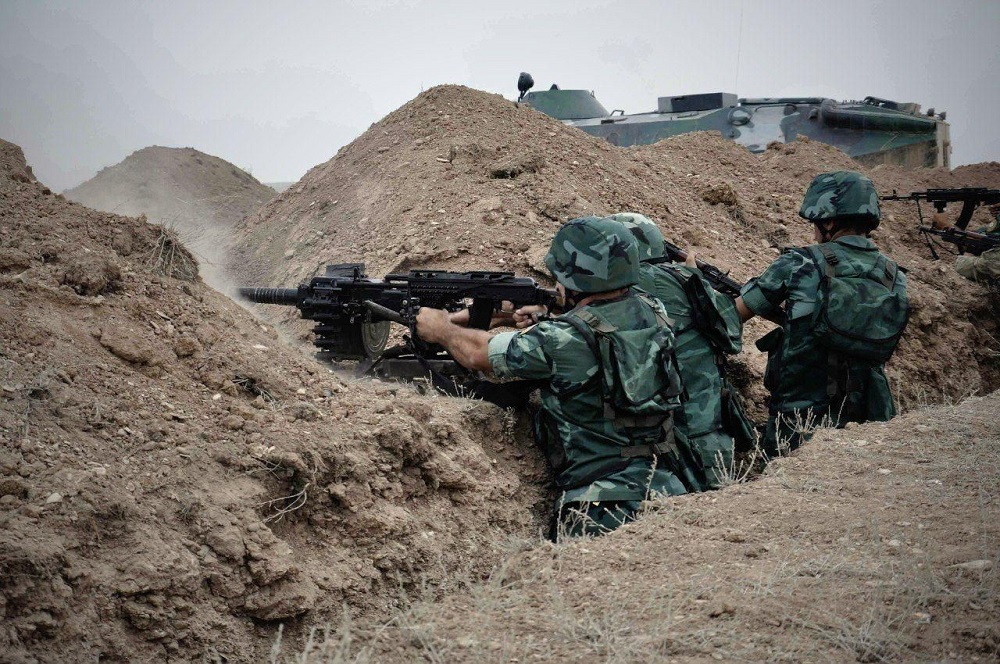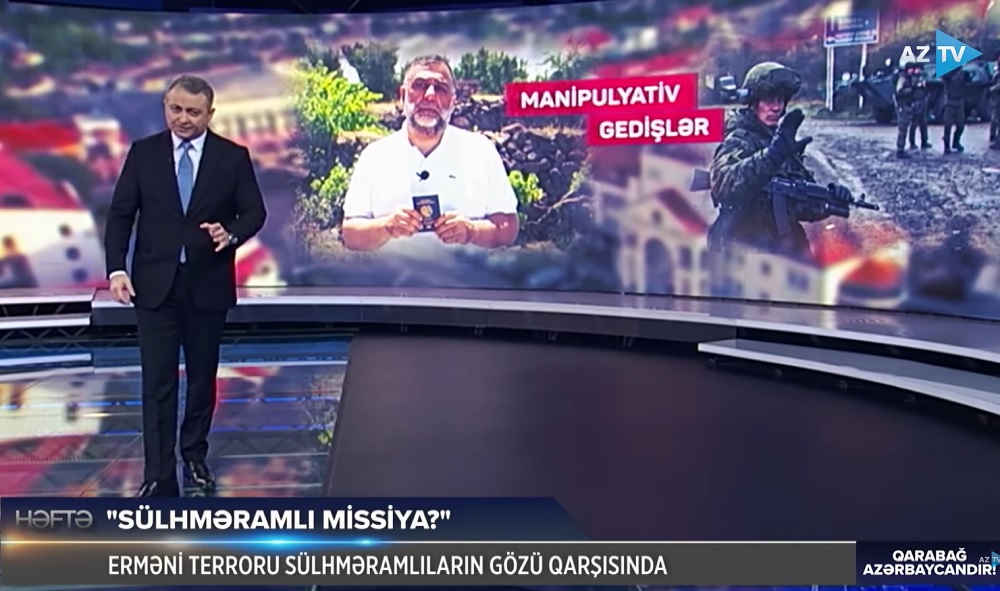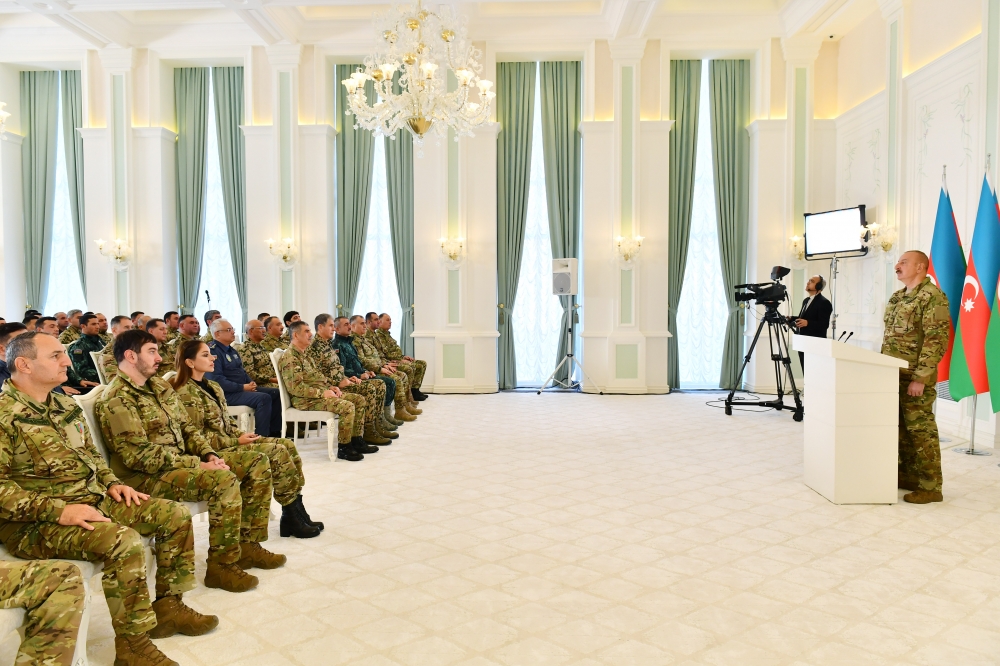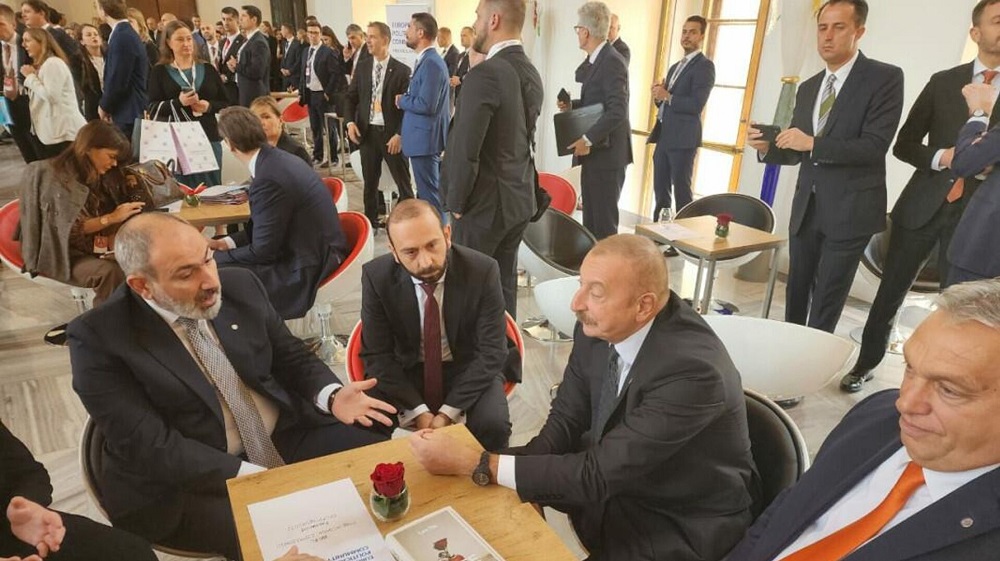"Azerbaijan is negotiating with Russia on the Zangezur corridor." Comment from Baku
Azerbaijan, Russia, Zangezur corridor
“In fact, we are negotiating the Zangezur corridor not with Armenia, but with Russia,” Azerbaijani President Ilham Aliyev said in a recent speech. According to political observer Agshin Kerimov, recent events “renew the military line on the agenda of Azerbaijan, which Moscow is quite loyal to.”
- “Aliyev is trying to show that he decides the format of negotiations.” Opinion from Yerevan
- How the war in Ukraine affects the real estate market in Georgia
- Ilham Aliyev: “France cannot take part in the peace process”
More than two years have passed since the signing of the trilateral agreement on November 10, 2020 which put an end to the second Karabakh war, but the ninth paragraph of the document, which regulates transport between the western regions of Azerbaijan with its exclave, the Nakhichevan Autonomous Republic, remains unfulfilled.
“All economic and transport routes in the region are being unblocked. Armenia guarantees the security of transport between the western regions of Azerbaijan and the Nakhichevan Autonomous Republic in order to organize the unhindered movement of citizens, vehicles and goods in both directions. Security of transport routes is being carried out by the Border Guard Service of the FSB of Russia. By agreement of the parties, the construction of new transport routes connecting the Nakhichevan Autonomous Republic with the western regions of Azerbaijan will be ensured,” the ninth paragraph of the statement signed by the presidents of Russia and Azerbaijan and the Prime Minister of Armenia reads.
Azerbaijan demands a “corridor” approach to the mattrer, because these terms in the agreement are identical to those applicable to the Lachin corridor.
Armenia, however, refuses to provide a road through its territory without control over it.
Contradictions between Baku and Moscow
According to political observer Agshin Kerimov, contradictions on the Karabakh issue between Azerbaijan and Russia did not harm the interests of these countries in other promising areas.
Kerimov emphasizes that, given the Kremlin’s growing pressure on the post-Soviet republics, Baku is taking serious steps to strengthen relations with Ankara, thereby creating a reliable shield against possible threats.
Kerimov believes that Moscow also has reasons to soften its tone in relations with Baku. First, Russia does not want to lose ties with Turkey, and second, the Kremlin is concerned about the possible loss of its own forces in confrontation with the growing pressure of the West, and does not want to lose leverage in the region.
“The Kremlin is acting cunningly and in face of global isolation is strengthening cooperation with Turkey and Azerbaijan in the South Caucasus.
However, Baku and Ankara are well aware of the risks posed by Moscow’s plans for the future, and therefore on the surface of trilateral cooperation, Azerbaijan and Turkey are trying not to instigate problems with Moscow and instead find middleground,” Kerimov says.
He noted that at present the issue of extending the mandate of the Russian peacekeeping forces in Karabakh is the main obstacle in cooperation between Baku and Moscow, and “the Kremlin is looking for an excuse not to leave the territory of Azerbaijan”:
“To achieve its goal, Russia relies on the Armenian population of Karabakh, and is trying to uphold hotbeds of tension in this region to justify its presence.
Azerbaijan, on the other hand, is determined to expel Russian troops from its territory after a five-year period, taking steps towards curbing Moscow’s attempts to build a long-term strategy with the help of Karabakh separatists.
The views of Azerbaijan and Russia on this issue are diametrically opposed, but on other issues, from the delimitation of the state border with Armenia to energy projects, strategic cooperation with Russia is only deepening.”
With whom is the issue of the Zangezur corridor being discussed?
Kerimov notes that Baku and Moscow are not postponing discussion of other issues due to conflicting views on specific topics:
“At the preliminary stage, on the issue of the Zangezur corridor Azerbaijan and Russia adhere to the same views and turn this mechanism into a tool for punishing Armenia.
It is no coincidence that the historical maps which suit the interests of Baku, which will be used in the process of delimitation of the state border between Azerbaijan and Armenia, are from the General Staff of the Russian military, and these “dusty” documents are the key to a unified approach in relations with Yerevan.
Regarding the issue of the Zangezur corridor, President Aliyev pointed out some details of his discussion in a recent speech.
‘In fact, we are negotiating the Zangezur corridor not with Armenia, but with Russia, because Armenia is a dependent country. Her independence is very symbolic. Therefore we do not want to waste time negotiating with them and are negotiating with Russia. By the way, we discussed the Zangezur corridor during my last contact with Russian officials. I do not think that Armenia is capable of blocking this corridor,’ the President of Azerbaijan said.
This statement explains some of the details of the question. First, Azerbaijan, Turkey and Russia are pursuing a coordinated policy in this direction. Second, the symbolism of Armenia’s independence is also explained by the fact that Moscow has its own plans.
And in the end, I want to note that the resurgent revanchist sentiments in Armenia, as well as the way Yerevan is trying to stalemate the negotiation process with its uncertain position, are resuming the military line on the Azerbaijani agenda, which Moscow is quite loyal to,” Kerimov said.
Azerbaijan, Russia, Zangezur corridor






















